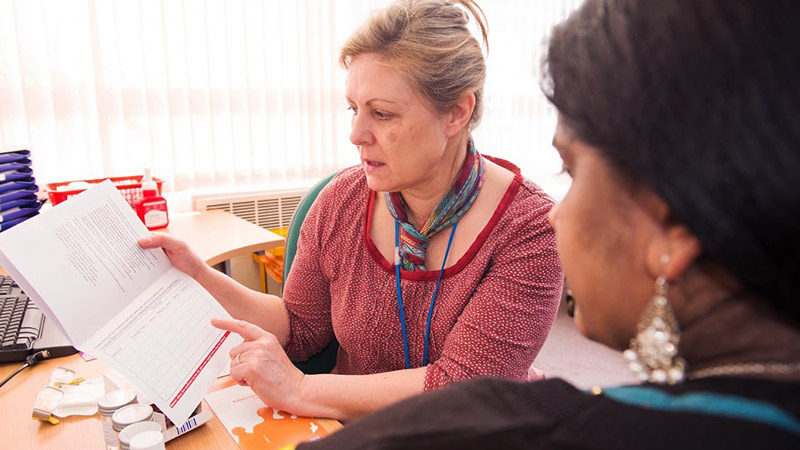Enhanced Clinical Practice
MSc or PGDip or PGCert
Key facts
Course code
MSC-ECP
Start dates
May 2025 / September 2025 / January 2026 / May 2026 / September 2026
Application deadline
1 September for a September start.
1 December for a January start.
1 May for a May start.
Course length
Part time: 3 - 5 years
School(s)
Academic level
7
This course is not available to students classed as International for fees purposes.
Overview
The multi-professional MSc in Enhanced Clinical Practice encompasses core modules of study that promote the development of healthcare professionals delivering a high standard of complex, enhanced care for patients, using enhanced levels of clinical judgement, skills and knowledge, consulting with patients, their families, carers and the multidisciplinary team.
The curriculum will concentrate on the analysis, synthesis and appraisal of enhanced clinical evidence-based practice appropriate to their clinical service provision, seeking out and applying relevant evidence, enhanced clinical assessments, diagnostics, interventions, and equipment to make clinical decisions.

How to apply
Entry requirements
- evidence of successful achievement of study at level 6
- registered in the UK with an appropriate professional body, such as the Health Care and Professions Council, - Nursing and Midwifery Council or General Pharmaceutical Council
- a minimum of one year post-qualification / post-registration experience
- employed in clinical / healthcare practice, in the UK, in a role with consistent patient contact that facilitates the development of enhanced knowledge and clinical skills to meet the programme learning outcomes
- have access to an appropriate clinical supervisor within practice
- has the support of their line manager.
Terms and conditions of enrolment
When you accept our offer, you agree to the Terms and Conditions of Enrolment. You should therefore read those conditions before accepting the offer.
Application process
Tuition fees
Questions about fees?
Contact Student Finance on:
Tuition fees
Fees quoted are for the first year only. If you are studying a course that lasts longer than one year your fees will increase each year.
How and when to pay
Tuition fee instalments for the semester are due by the Monday of week 1 of each semester. Students are not liable for full fees for that semester if they leave before week 4. If the leaving date is after week 4, full fees for the semester are payable.
- For information on payment methods, please see our Make a Payment page.
- For information about refunds, please visit our Refund policy page
Financial support and scholarships
Additional costs
Please be aware that some courses will involve some additional costs that are not covered by your fees. Specific additional costs for this course are detailed below.
Learning and assessment
The programme's instructional framework embodies an interprofessional, learner-centred, patient-centred, and practice-focused ethos. Within each module, a balance is struck between structured learning engagements, independent study, and assessment. Emphasis is placed on leveraging opportunities for the exchange and enhancement of skills, knowledge, and experiences. Diverse teaching methodologies are employed to capitalise on the collective expertise within the cohort, fostering critical self-awareness and proficiency in both academic and research domains.

Study modules
Please note: As our courses are reviewed regularly as part of our quality assurance framework, the modules you can choose from may vary from those shown here. The structure of the course may also mean some modules are not available to you.
Learning and teaching
The teaching and learning methods are designed to offer an enhanced and accessible learning experience, developing a community of learning both in the classroom and online. All learners, regardless of background, learning style or ability are valued, equal, and supported to participate and contribute fully to the programme.
For the full list of optional modules, please contact your academic supervisor.
Assessment
Assessment methods used on this course
Learners will be assessed utilising a variety of assessment strategies depending on the module. These are chosen because of their appropriateness for an individual module and programme learning outcomes and content, the academic standard expected and the different styles of learning that learners exhibit.
Academic assessment will support the integration of theory with professional practice, with many assessments drawing upon experiences and learning unique to the learner's profession, speciality and personal identity. A variety of formal and informal formative assessment opportunities will provide feedback for learning, through various formats including written, voice comment, peer and self.
Programme changes:
On rare occasions we may need to make changes to our course programmes after they have been
published on the website. For more information, please visit our
changes to programmes page.
